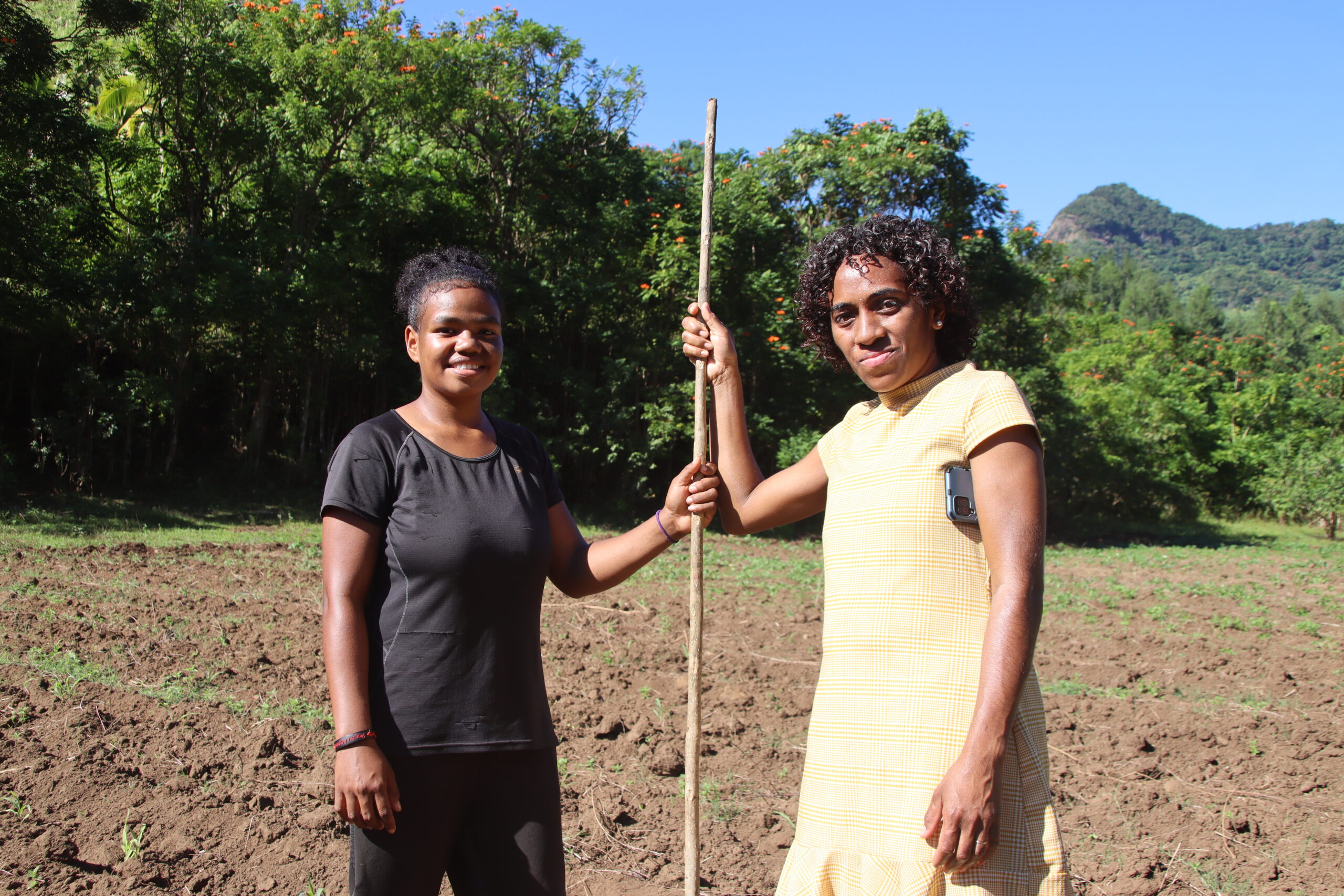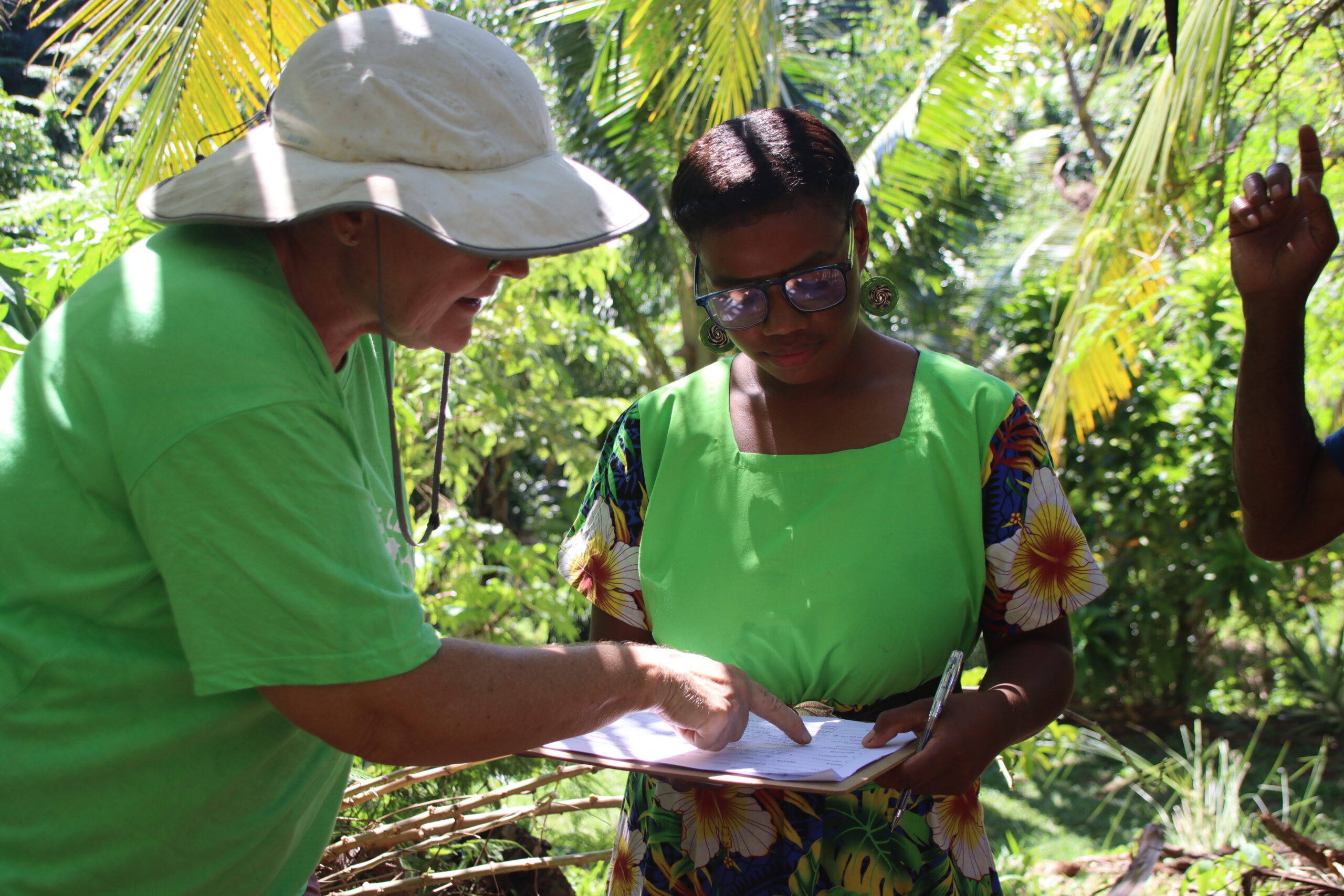The increasing reliance on agrochemical inputs among farmers in Fiji and the Pacific is a growing concern that threatens food security, cultural practices, and exacerbates the impact of climate change. 22-year-old Laniana Toqakina from Suweni village in Cakaudrove Province, Fiji grew up witnessing the increasing use of agrochemical inputs and their negative effects on crops and the environment. “I’ve noticed that some farmers’ crops aren’t as healthy as they used to be. These chemicals are supposed to help crops grow, but it looks like they’re harming our farm and food,” she reflects. Her journey highlights the critical role of young women in transforming farming practices to address pressing issues like food security and climate change.

In May 2024, Laniana and her family participated in comprehensive organic agriculture training at the Mudrenicagi Organic Learning Farm Centre under SPC’s Pacific Organic Learning Farms Network (POLFN) Project. This centre, one of five in the Pacific, is a collaborative initiative led by the Pacific Organic and Ethical Trade Community (POETCom) and SPC with Fiji’s Ministry of Agriculture.
The training introduced agroecological, discovering the benefits of organic compost and natural fertilizers. They learned about mulching for moisture retention and weed suppression, and intercropping for enhanced biodiversity and pest resilience, as well as Soil Health, Farm Design, Seed Saving and integrating livestock into the farm. The training included revisiting traditional Fijian farming methods, and Lani was reminiscent of her grandparents’ practices, and these practices were implemented at their Suweni village farm.
As a young woman navigating a male-dominated field, Laniana’s journey stands to inspire other young women in Fiji by overcoming challenges in agriculture and leaning on Mudrenicagi Farm Advisor, Karen Mills and the greater organic farmers network established on Vanua Levu island. She is part of a growing network of farmers on Vanua Levu island who share practical tips, resources, and support through platforms like Facebook. “Through Karen Mills at the Mudrenicagi Organic Learning Farm, we have a lifetime access to learnings, compost recipes, and resources,” she shares, emphasizing the mentorship she receives to test organic practices tailored to their local soil.

Karen Mills, Organic Farm Advisor shared that though Lani was quiet the first two days, she began participating more vocally by day 3 out of the 5-day training, sharing, “Back at the farm she is showing her other siblings and youth in her community how to make compost and has posted pictures on our facebook page of her large compost pile”. The impact of these practices has been remarkable. Her family farm now boasts healthier soil, more resilient crops, and better-tasting produce.
Beyond the farm, Laniana benefits from:
The POLFN Project’s inclusive approach—training entire families and forming regional farmer clusters—has made organic farming accessible and practical for women like Laniana. This method not only boosts family involvement but also challenges traditional norms, positioning women equal to male farmers in agriculture. “Traditionally women grow food for their family and take their surplus to their local market for sale. So often these women are not seen as farmers. We need to shine the spotlight on these women who feed their families and their communities and not just recognise the farmers (typically male) who farm the root crops” says Mudrenicagi Organic Farm Advisor, Karen Mills. As she plants seeds on her family’s farm, Laniana is also planting hope for a new generation of women who see agriculture not just as a livelihood but as a platform for transformation.